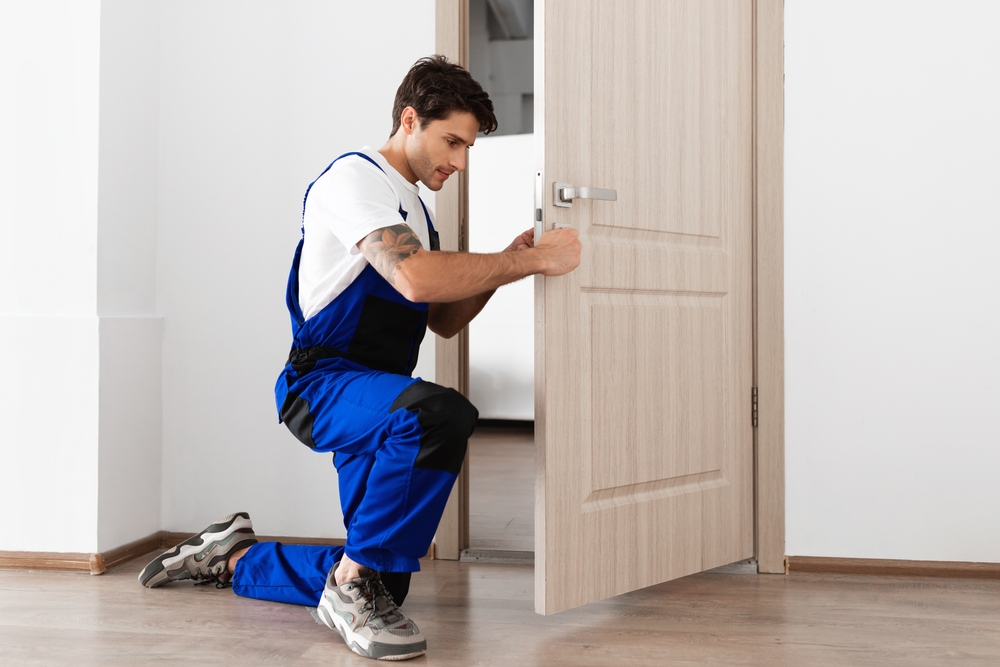The Importance of Regular Lock Maintenance for Home Security

When it comes to securing your home, one of the most crucial, yet often overlooked aspects is the maintenance of your locks. Regular lock maintenance is not just about ensuring that your locks function properly; it’s a vital component in maintaining the overall security of your home. In this blog, we will delve into why regular lock maintenance is essential and provide you with some practical home lock maintenance tips to enhance your home’s security.
Why Regular Lock Maintenance Matters
Preventing Security Breaches
One of the primary reasons for regular lock upkeep is to prevent security breaches. Locks that are not well-maintained can become faulty, making it easier for intruders to gain access to your home. A malfunctioning lock might not engage properly, leaving your home vulnerable. By performing regular maintenance, you ensure that your locks operate as intended, significantly reducing the risk of unauthorized entry.
Avoiding Costly Repairs
Regular maintenance can also save you money in the long run. When locks are neglected, small issues can develop into major problems that require expensive repairs or replacements. By addressing minor issues promptly, you can avoid the need for more costly interventions. This proactive approach not only keeps your home secure but also helps in budgeting for home maintenance.
Extending Lock Lifespan
Locks, like any mechanical component, have a finite lifespan. Regular upkeep helps extend this lifespan by ensuring that the locks are in good working condition. Routine checks and maintenance can prevent wear and tear, allowing your locks to function efficiently for a longer period. This means fewer replacements and more reliable home security.
Home Lock Maintenance Tips
1. Lubricate Your Locks
One of the simplest yet most effective home lock maintenance tips is to regularly lubricate your locks. Over time, dust and grime can accumulate inside the lock, causing friction and making it harder for the key to turn. Using a graphite-based lubricant can keep the internal mechanisms running smoothly. Avoid using oil-based lubricants, as these can attract more dirt and debris.
2. Check for Rust and Corrosion
Locks exposed to the elements, such as those on exterior doors, can be prone to rust and corrosion. Regularly inspect your locks for any signs of rust or corrosion. If you notice any, clean the affected areas with a wire brush or sandpaper and apply a rust-resistant primer and paint. This will not only keep your locks functioning well but also enhance their durability against the elements.
3. Test Lock Functionality
Ensure that you test the functionality of your locks regularly. This includes checking that the key turns smoothly, the latch engages properly, and the lockbolt extends fully. If you experience any difficulty, it may indicate that the lock needs adjustment or repair. Addressing these issues early on can prevent more significant problems down the line.
4. Inspect Key and Lock Alignment
Misalignment between the key and lock can cause difficulties when locking or unlocking your door. Regularly inspect the alignment of the key with the lock. If you notice any misalignment, it may be necessary to adjust the strike plate or the lock itself. Proper alignment ensures that the lock functions correctly and maintains a high level of security.
5. Clean and Maintain Keyholes
Keyholes can accumulate dirt and debris over time, which can affect the lock’s performance. Use a can of compressed air to blow out any debris from the keyhole. Additionally, avoid using harsh chemicals or solvents that could damage the lock mechanism. Keeping the keyhole clean ensures that the key turns smoothly and reduces wear and tear on the lock.
6. Replace Worn or Damaged Parts
Regularly inspect your locks for any signs of wear or damage. Components such as the latch, strike plate, and key can become worn out over time. Replace any worn or damaged parts promptly to ensure that your lock remains secure and functional. Ignoring these issues can lead to more significant problems and compromise your home’s security.
7. Schedule Professional Inspections
While regular DIY maintenance is crucial, it’s also beneficial to schedule professional inspections of your locks. A locksmith can provide a thorough assessment of your lock system and identify any potential issues that may not be apparent during regular checks. Professional inspections can help you address any underlying problems and ensure that your home security remains at its best.
Conclusion
Regular lock maintenance is a fundamental aspect of home security that should not be overlooked. By following these home lock maintenance tips, you can ensure that your locks remain in excellent condition, thereby enhancing the security of your home. From lubricating and cleaning to professional inspections, each step plays a crucial role in maintaining the functionality and effectiveness of your locks. Remember, a well-maintained lock is not just a convenience—it’s a key element in keeping your home safe and secure.
Need a Locksmith in Vienna, VA?
We have been servicing the Greater Fairfax/DC area for over 40 years with services for residential, commercial, and automotive clients alike. We are proud to offer you the best locksmithing service in Fairfax, Arlington, Loudoun, Prince William counties and the surrounding communities. Our professional locksmiths are here to handle any job. At Artie’s Lock and Key we are fully equipped with the latest tools and are professionally trained to handle locks of all kinds. Contact us to purchase a new lock, new car key or remote, rekey, or to schedule a job for repair or installation. The team at Artie’s Lock and Key can work on all your transponder keys, commercial locks, panic bars, and more. We are fully licensed, bonded, and insured. Contact us today to learn more about what we can do for you!
